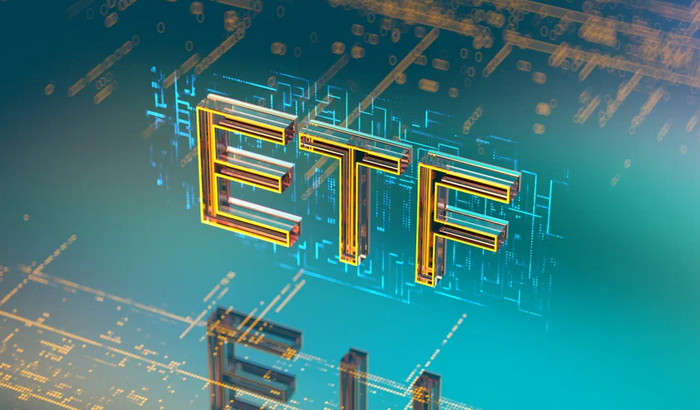-
 Bitcoin
Bitcoin $93,730.6847
5.75% -
 Ethereum
Ethereum $1,815.6586
11.22% -
 Tether USDt
Tether USDt $1.0002
0.04% -
 XRP
XRP $2.2678
8.10% -
 BNB
BNB $612.5547
1.17% -
 Solana
Solana $151.9341
8.37% -
 USDC
USDC $1.0001
0.02% -
 Dogecoin
Dogecoin $0.1832
11.48% -
 Cardano
Cardano $0.7040
10.16% -
 TRON
TRON $0.2461
0.94% -
 Chainlink
Chainlink $15.0169
11.74% -
 Avalanche
Avalanche $22.7977
11.81% -
 Sui
Sui $2.9025
24.13% -
 Stellar
Stellar $0.2724
9.05% -
 UNUS SED LEO
UNUS SED LEO $9.0768
2.64% -
 Shiba Inu
Shiba Inu $0.0...01368
8.60% -
 Toncoin
Toncoin $3.1311
7.38% -
 Hedera
Hedera $0.1858
7.26% -
 Bitcoin Cash
Bitcoin Cash $359.6399
3.60% -
 Polkadot
Polkadot $4.1313
9.28% -
 Litecoin
Litecoin $84.4993
5.86% -
 Hyperliquid
Hyperliquid $19.0580
2.98% -
 Bitget Token
Bitget Token $4.5863
2.90% -
 Dai
Dai $1.0000
0.00% -
 Ethena USDe
Ethena USDe $0.9994
0.02% -
 Pi
Pi $0.6665
4.66% -
 Monero
Monero $228.7918
5.01% -
 Pepe
Pepe $0.0...09154
12.28% -
 Uniswap
Uniswap $6.0478
11.28% -
 Aptos
Aptos $5.3790
8.29%
can an etf go broke
Although ETFs are generally structured to avoid bankruptcy, liquidation or delisting can occur due to factors like profitability or listing requirements.
Oct 10, 2024 at 12:41 am

Can an ETF Go Broke?
Understanding Exchange-Traded Funds (ETFs)
- ETFs are baskets of securities (e.g., stocks, bonds) traded on stock exchanges like individual stocks.
- They provide diversification and flexibility while tracking the performance of an underlying index or asset class.
Structure of ETFs
- ETFs are managed by investment companies known as issuers.
- Issuers create and redeem shares based on investor demand.
- ETFs are typically highly liquid, with shares traded throughout the trading day.
Can ETFs Go Bankrupt?
- ETFs, as investment vehicles, generally do not go bankrupt in the same way that companies or individuals can.
- However, ETFs can undergo certain events that may affect their existence or performance:
Liquidation
- Issuers may liquidate an ETF if the fund is no longer deemed feasible or profitable.
- Investors would receive the net asset value of their shares at the time of liquidation.
Delisting
- ETFs can be delisted from stock exchanges if they fail to meet certain listing requirements (e.g., low trading volume).
- Delisted ETFs may still exist and trade over-the-counter (OTC) markets, but with lower liquidity.
Investment Risks
- While ETFs are generally less risky than direct investments in individual securities, they are not immune to market fluctuations.
- The underlying assets of an ETF can decline in value, impacting the ETF's performance.
Conclusion
- ETFs are typically structured to avoid bankruptcy, but they can experience liquidation or delisting.
- Investors should consider the risks and underlying holdings of an ETF before investing.
- Regular monitoring and periodic reviews are recommended to ensure that an ETF continues to meet their investment objectives.
Disclaimer:info@kdj.com
The information provided is not trading advice. kdj.com does not assume any responsibility for any investments made based on the information provided in this article. Cryptocurrencies are highly volatile and it is highly recommended that you invest with caution after thorough research!
If you believe that the content used on this website infringes your copyright, please contact us immediately (info@kdj.com) and we will delete it promptly.
- U.S. spot Bitcoin (BTC) and Ethereum (ETH) exchange-traded funds (ETFs)
- 2025-04-23 19:55:13
- Bitcoin (BTC) Whales Return to Binance as BTC Price Recovers Above $90,00
- 2025-04-23 19:55:13
- Cantor Fitzgerald Makes a Major Move into the Cryptocurrency Space with the Creation of a $300M Bitcoin Acquisition Vehicle
- 2025-04-23 19:50:13
- Tesla Continues to Hold Approximately $951 Million Worth of Bitcoin
- 2025-04-23 19:50:13
- Bitcoin (BTC) Price Just Smashed Above $90K Again and Now Smart Money Are Racing to Buy BTCBULL Before BTC USD Hits 6 Figures
- 2025-04-23 19:45:12
- Chainlink (LINK) Price Today Holds Steady Near Crucial Levels as 1B Tokens Flow to Market
- 2025-04-23 19:45:12
Related knowledge

What role does SEC play in Bitcoin ETF approval?
Feb 25,2025 at 06:48am
Key Points:SEC's Role in Bitcoin ETF Approval ProcessHistorical Efforts to Establish a Bitcoin ETFSEC's Criteria for Bitcoin ETF ApprovalPotential Impact of a Bitcoin ETF on the Cryptocurrency MarketTimeline and Outlook for Bitcoin ETF ApprovalArticle:SEC Play in Bitcoin ETF ApprovalThe United States Securities and Exchange Commission (SEC) plays a crit...

Who is eligible to issue Bitcoin ETFs?
Feb 25,2025 at 11:13am
Key Points:Only regulated financial institutions with the necessary expertise and infrastructure are eligible to issue Bitcoin ETFs.The Securities and Exchange Commission (SEC) has not yet approved any spot Bitcoin ETFs, but has approved several futures-based ETFs.Applicants must meet stringent requirements, including having a strong track record and su...

What impact does Bitcoin ETF have on the market?
Feb 25,2025 at 11:37am
Key Points:Introduction to Bitcoin ETFs and their role in the cryptocurrency marketHistorical development and performance of Bitcoin ETFsPotential benefits of Bitcoin ETFs for investors and the marketRisks and limitations associated with Bitcoin ETFsRegulatory considerations and their impact on Bitcoin ETFsArticle:Introduction to Bitcoin ETFsBitcoin exc...

Which investors are Bitcoin ETFs suitable for?
Feb 27,2025 at 04:01pm
Key Points:Understanding Bitcoin ETFsBenefits of Bitcoin ETFsSuitability of Bitcoin ETFs for Different InvestorsAssessing Risk Tolerance and Investment GoalsConsidering Short-Term and Long-Term StrategiesExamining Tax ImplicationsSeeking Professional AdviceUnderstanding Bitcoin ETFsBitcoin exchange-traded funds (ETFs) are investment vehicles that track ...

What is the administrative expenses of Bitcoin ETFs?
Feb 26,2025 at 12:24am
Key Points:Administrative expenses are a crucial factor to consider when evaluating Bitcoin ETFs.These expenses can significantly impact the performance of the fund and ultimately the investor's returns.Understanding the various components of administrative expenses is essential for informed decision-making.Comparing administrative expenses across diffe...

What are the fees for purchasing Bitcoin ETFs?
Feb 27,2025 at 07:13pm
Key Points:Bitcoin exchange-traded funds (ETFs) are a cost-effective and regulated way to gain exposure to Bitcoin.Fees associated with Bitcoin ETF purchases vary depending on the platform, trading volume, and account type.It is essential to evaluate fee structures carefully to optimize investment returns.Fees Associated with Purchasing Bitcoin ETFs1. B...

What role does SEC play in Bitcoin ETF approval?
Feb 25,2025 at 06:48am
Key Points:SEC's Role in Bitcoin ETF Approval ProcessHistorical Efforts to Establish a Bitcoin ETFSEC's Criteria for Bitcoin ETF ApprovalPotential Impact of a Bitcoin ETF on the Cryptocurrency MarketTimeline and Outlook for Bitcoin ETF ApprovalArticle:SEC Play in Bitcoin ETF ApprovalThe United States Securities and Exchange Commission (SEC) plays a crit...

Who is eligible to issue Bitcoin ETFs?
Feb 25,2025 at 11:13am
Key Points:Only regulated financial institutions with the necessary expertise and infrastructure are eligible to issue Bitcoin ETFs.The Securities and Exchange Commission (SEC) has not yet approved any spot Bitcoin ETFs, but has approved several futures-based ETFs.Applicants must meet stringent requirements, including having a strong track record and su...

What impact does Bitcoin ETF have on the market?
Feb 25,2025 at 11:37am
Key Points:Introduction to Bitcoin ETFs and their role in the cryptocurrency marketHistorical development and performance of Bitcoin ETFsPotential benefits of Bitcoin ETFs for investors and the marketRisks and limitations associated with Bitcoin ETFsRegulatory considerations and their impact on Bitcoin ETFsArticle:Introduction to Bitcoin ETFsBitcoin exc...

Which investors are Bitcoin ETFs suitable for?
Feb 27,2025 at 04:01pm
Key Points:Understanding Bitcoin ETFsBenefits of Bitcoin ETFsSuitability of Bitcoin ETFs for Different InvestorsAssessing Risk Tolerance and Investment GoalsConsidering Short-Term and Long-Term StrategiesExamining Tax ImplicationsSeeking Professional AdviceUnderstanding Bitcoin ETFsBitcoin exchange-traded funds (ETFs) are investment vehicles that track ...

What is the administrative expenses of Bitcoin ETFs?
Feb 26,2025 at 12:24am
Key Points:Administrative expenses are a crucial factor to consider when evaluating Bitcoin ETFs.These expenses can significantly impact the performance of the fund and ultimately the investor's returns.Understanding the various components of administrative expenses is essential for informed decision-making.Comparing administrative expenses across diffe...

What are the fees for purchasing Bitcoin ETFs?
Feb 27,2025 at 07:13pm
Key Points:Bitcoin exchange-traded funds (ETFs) are a cost-effective and regulated way to gain exposure to Bitcoin.Fees associated with Bitcoin ETF purchases vary depending on the platform, trading volume, and account type.It is essential to evaluate fee structures carefully to optimize investment returns.Fees Associated with Purchasing Bitcoin ETFs1. B...
See all articles
























































































